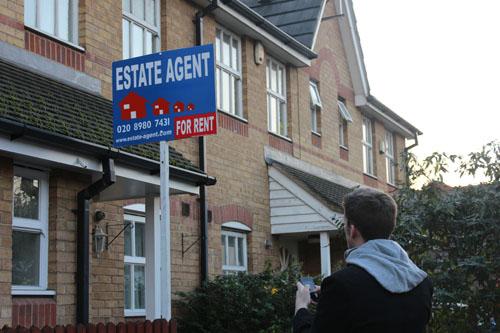 A report from 2011 warned that almost three-quarters of UK social housing blocks were potentially unsafe in a fire.
A report from 2011 warned that almost three-quarters of UK social housing blocks were potentially unsafe in a fire.
Carried out when Grant Shapps was Housing and Local Government Minister, the 2011 survey revealed that 75 per cent of managers responsible for maintaining social housing buildings were not certain their blocks had undergone a proper fire risk assessment.
The latest revelations on government inaction over safety standards in social housing follows additional reports that a review of building regulations covering fire safety was promised by former Croydon Central MP Gavin Barwell last year but not published.
Mr Barwell, recently appointed chief of staff for Theresa May, told MPs in October that part B of the regulations would be reviewed following the investigation into the fatal 2009 Lakanal House fire in Camberwell which killed six people.
The review was never published and fire safety experts claimed the Government’s desire to cut red tape could have prevented ministers introducing new safety measures.
Mr Barwell, who was housing minister at the time, told the House Commons: “We have publicly committed ourselves to reviewing part B following the Lakanal House fire.”
Government drive to reduce regulation
Former chief fire officer Ronnie King, honorary secretary of the all-party parliamentary group on fire safety and rescue, said the regulations “badly need updating” and “three successive ministers have not done it”.
Speaking to the Press Association Mr King said: “It’s sad that we always have to go to stable-door legislation.
“Lakanal House wasn’t enough deaths to trigger off a major public inquiry. It just went to an inquest, there was no formal report on it.”
Mr King also suggested that a Government drive to cut red tape – by insisting that three regulations are removed for every new one created – should be reconsidered when it comes to fire safety.
Asked why he thought the review of building regulations had not been produced, he said: “My own thinking is there was the red tape challenge and they don’t really want to put regulation on to businesses, adding a burden.
“It’s one of those that if you bring in a new regulation, you have got to give three up to get it.”
Asked if he thought the red tape challenge was putting people at risk, he said: “I think where fire safety is concerned, it ought to be reconsidered, this ‘one in, three out’.”
“Buildings like the one today over 30 metres [Grenfell Tower], when they are new, would require fire suppression installed. But there are 4,000 older tower blocks in the UK that don’t have sprinklers.
“There are people who would argue that it’s too costly and there are other measures that could have been done but it’s a fact that people don’t die in sprinkler buildings.”
Labour MP Jim Fitzpatrick, chairman of the all-party parliamentary group, said the Government has resisted calls to install sprinkler systems in high-rise blocks.
Prior warnings
Astoundingly despite an all-parliamentary group’s recommendation that sprinklers be fitted to older buildings this appears not to have been acted on. Following the Lakanal House fire, the coroner,Judge Frances Kirkham, wrote to the government recommending that it “encourage providers of housing in high-rise residential buildings” to “consider the retrofitting of sprinkler systems”.
Mr Fitzpatrick, who was a firefighter for 20 years, told LBC: “We’ve been pressing for fire sprinkler systems in buildings where we think it’s appropriate – certainly over a height level and in places where there is vulnerability, care homes and in schools – and Government has been resisting that for some time.”
Many fire safety experts have warned that chronic under-investment in social housing over several decades has left hundreds of blocks of flats unsafe, with councils and other housing suppliers unable to afford the hundreds of millions of pounds it would take to bring them up to standard.






